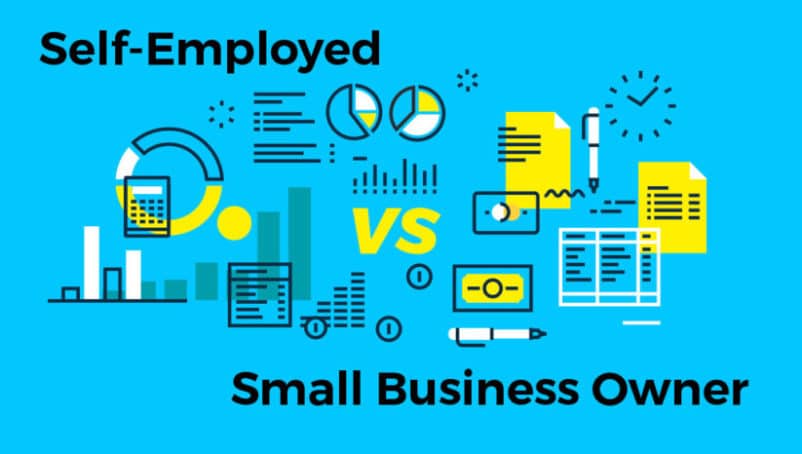Who qualifies for the home office tax deduction?
The Internal Revenue Service (IRS) has clear rules about who can claim a work-from-home tax deduction. You’ll qualify if you use part of your home in one of these ways:
- Exclusively and regularly as your principal place of business
- Exclusively and regularly as a space for meeting clients or customers
- As a separate structure (like a detached garage) used exclusively for business
- Regularly for storing inventory or product samples for your retail or wholesale business
- For rental purposes
- As a daycare facility
Long story short — your home office must be your primary workplace to list deductions on Schedule C of your tax return.
But this opens the door to write-offs, whether you’re looking for 1099 work-from-home tax deductions or W2 work-from-home tax deductions.
Keep in mind that you won’t get to deduct home office expenses if you occasionally work from home, but your main office is at another location.
Even if you mostly work from home during a tax year, using your office space for both work and personal activities might disqualify you. The IRS takes that “exclusive use” requirement seriously.
But there’s flexibility for certain businesses. For instance, if you run a construction company or cleaning company where you meet and serve clients at different locations but handle all your paperwork and billing from a home office, you can claim tax write-offs for these business activities.
Just remember to check local laws and zoning ordinances before launching into regular use of your home office for business to make sure doing so isn’t prohibited in your neighborhood.
Home office insurance deductions: An overlooked write-off
Many home-based business owners overlook insurance as a necessity, mistakenly believing homeowners’ or renters’ insurance covers them. But most home and renter policies won’t protect your business assets. That’s why business insurance belongs on your list of small home business essentials.
This is especially true if you keep more than a few thousand dollars worth of equipment or inventory at home. For example, if you store $10,000 worth of products in your basement and a pipe bursts, ruining your inventory, your homeowners probably won’t cover the loss. Commercial property insurance can help cover goods, inventory and equipment should the worst come to pass.
And here’s the good news: business insurance is often tax deductible. Here’s what you can write off:
General Liability insurance
General liability is an essential safeguard for your home business, especially if clients visit your house. This policy could protect you from the financial consequences of accidents that happen on your property. Whether you need coverage for a pet grooming business or a tutoring service, the premiums are typically tax-deductible.
Workers’ Compensation insurance
Workers’ comp covers employee medical bills and lost wages if your staff gets sick or injured on the job. Most states require this type of coverage for businesses with one or more employees.
If you’re paying for workers’ comp to cover your employees, those premiums count as a business expense you can deduct. Even if you’re working solo now but plan to hire help later, it’s good to know these costs can reduce your tax bill.
Professional Liability insurance
Sometimes called errors & omissions (E&O), professional liability insurance helps protect you against accusations of negligence, missed deadlines, and business errors. It pays for the cost of defending yourself in a lawsuit and damages if you’re found liable.
For consultants, freelancers, and other professionals working from home, E&O insurance premiums are generally deductible.
Commercial Property insurance
Commercial property insurance helps protect your storefront or office space from damage due to theft, vandalism, fire, and other covered perils. It also covers the inventory, supplies, and equipment you need to run your business.
If the damage is so severe that you can’t operate your business temporarily, it can help replace your business income until you get your company up and running again. And yes, those premiums are tax-deductible.
Commercial Auto insurance
Personal auto insurance doesn’t usually cover vehicles if you use them for business purposes, but commercial auto does.
Be aware of this caveat: If you deduct your commercial auto insurance premium, you can’t deduct the mileage you accrue while driving for business purposes. So, you’ll have to choose which tax break you want to take.
Self-employed health insurance
If you pay for health, dental or long-term care insurance for yourself, your spouse or your dependents, you can deduct the premiums if you meet specific requirements.
Other potential work from home tax deductions
Tax deductions for a home office go beyond insurance and basic home office write-offs. Here are some business expenses you may be able to deduct as a self-employed person:
- Education and training: Work-related courses and training, transportation to and from classes, tuition, books, and supplies
- Home office space improvements: Part of your rent or mortgage and expenses related to making repairs or improvements to the business area of your home
- Business mileage and travel: Mileage fees for handling work-related business using your car, including meeting clients at a coffee shop, picking up supplies, or meeting with your banker to get a business loan
While it may be tempting, you can’t legally claim these expenses as home office expense deductions:
- Costs of traveling for business when you were also traveling for personal reasons
- The square footage of an entire room when you only use one corner with a desk for business purposes
- Losses for a hobby that you’re trying to pass off as a business
Home office tax deduction calculator
Want to make sure you’re getting every dollar you deserve from your home office? Smart move. Claiming home office expenses is an important part of maximizing your profit.
If you use a home office tax deduction calculator, know that the IRS has guidelines about what you can (and can’t) write off. Home-based business deductions must be classified as both “ordinary and necessary” for your industry — think printer ink, computer equipment, and internet service that keep your home office running.
You’ve got two ways to calculate your home office tax deduction, and you can pick the one that saves you the most money. Here’s a look at both options:
Calculate using the simplified method
The simplified method lives up to its name: you can deduct $5 per square foot of your home office space, up to 300 square feet. That means the maximum deduction is $1,500, even if your office is bigger.
Even though the simplified option saves you from recordkeeping and paperwork, you can’t deduct actual home office expenses related to business use of your home.
For example, depreciation, mortgage interest, or real estate taxes aren’t allowable using the simplified method. However, business expenses unrelated to your home — such as marketing and employee wages — are available to write off.
The simplified method is perfect if you want a straightforward calculation without tracking every receipt.
Calculate using actual expenses
Calculating your home office deduction using actual expenses is the “regular” method. In this case, you add up all your actual business expenses, then multiply by the percentage of your home used for business.
For example, if your home office takes up 10% of your house, you can deduct 10% of qualifying expenses.
This method requires more precise recordkeeping to tally up your home costs, but it allows you to claim indirect and direct expenses:
- Home depreciation
- Utilities
- Property taxes
- Mortgage interest
- Home office repairs and maintenance
So, if you’re wondering, “Can I write off my electric bill if I work from home?” The short answer is “yes” if you use the regular method.
It’s more complicated, but modern tax software can often handle the tax deduction for home office calculations automatically. You may also benefit from seeking the advice of a certified public accountant (CPA) or licensed tax professional to see which option earns you bigger tax write-offs as a small business owner.






